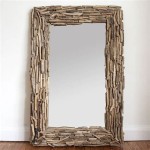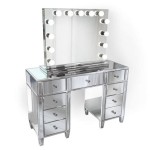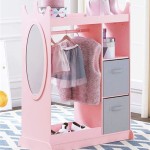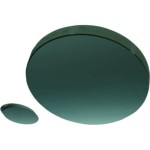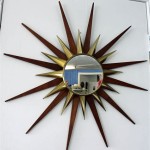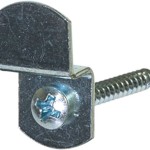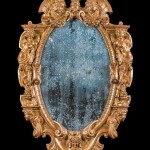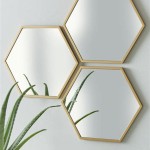Where Should a Mirror Be Placed in the Bedroom?
Mirrors serve both functional and aesthetic purposes in a bedroom. They can make a room feel larger, brighter, and more stylish. However, the placement of a mirror can significantly impact the energy and flow of a room, influencing sleep quality and overall well-being. Careful consideration should be given to where a mirror is positioned within the bedroom environment.
One of the most common pieces of advice regarding mirror placement in the bedroom is to avoid placing a mirror directly facing the bed. This placement is often cited in various traditions and practices like Feng Shui, which suggests that a mirror reflecting the bed can disrupt sleep. The reflection is thought to bounce energy around the room, creating a sense of unease and potentially interfering with restful sleep. This can lead to increased anxiety, nightmares, or a feeling of being watched.
Alternatively, positioning a mirror on a side wall can create a positive effect. Placing it perpendicular to the bed, rather than directly opposite, avoids the direct reflection. This allows for the practical use of the mirror while minimizing any potential negative impacts on sleep. This placement can also enhance the feeling of spaciousness within the room without the disruptive energy flow.
The height and size of the mirror also play a significant role in its effect on the room. A full-length mirror is functional for checking one's appearance, but its placement should still adhere to the guidelines previously mentioned. A smaller, decorative mirror can add a touch of elegance and style without dominating the space. The size of the mirror should be proportionate to the size of the room and the furniture around it. Overly large mirrors in a small room can make the space feel cluttered and overwhelming.
Using mirrors to enhance natural light is a clever design technique. Placing a mirror strategically across from a window can reflect natural light deeper into the room, brightening the space and creating a more welcoming atmosphere. This is particularly beneficial in rooms with limited natural light sources. It can reduce the need for artificial lighting during the day, saving energy and creating a more natural ambiance.
Reflecting positive imagery is another aspect to consider. Instead of reflecting clutter or an untidy area, it's beneficial to position mirrors to reflect appealing elements within the room. This might include artwork, plants, or a well-arranged dressing area. Focusing the mirror on positive imagery can create a more harmonious and visually pleasing environment, contributing to a sense of calm and order.
When selecting a location, the wall opposite the door is generally not recommended. While this might seem like a convenient spot to check one's appearance before leaving the room, it can symbolically push energy back out of the room. This can create a feeling of stagnation or difficulty progressing. It is often more beneficial to choose a wall that allows energy to flow freely within the space.
Incorporating mirrors into closet doors can be a space-saving solution, particularly in smaller bedrooms. This placement keeps the mirror concealed when not in use, minimizing its impact on the overall energy of the room. This can also enhance the functionality of the closet, providing a convenient place to check one's outfit without needing a separate, freestanding mirror.
Consider using a mirror as part of a decorative arrangement. A smaller mirror grouped with other decorative items like artwork or photographs can create a visually interesting focal point. This adds a touch of personality and style to the room without overwhelming the space. It also allows for flexibility in positioning the mirror without necessarily adhering to the stricter guidelines for larger mirrors.
The shape and frame of the mirror can also influence its effect on the room. Round mirrors are often associated with softness and unity, while square or rectangular mirrors offer a more structured and formal feel. The frame material, whether wood, metal, or another material, can complement the overall decor of the room, enhancing the aesthetic appeal and tying the design elements together.
Ultimately, the placement of a mirror in a bedroom relies on personal preference and the specific layout of the room. While general guidelines offer beneficial insights, the final decision should reflect the desired aesthetic and the overall feeling one wishes to create within their personal sanctuary. Thoughtful consideration of these principles can contribute to a harmonious and restful bedroom environment.

The Feng Shui Of Mirror Placement In Your Bedroom City Mattress

Best Mirror Position In Bedroom As Per Vastu Designcafe

Bedroom Mirror Ideas Mirrors Design Decor And Placement Fab Glass

Best Mirror Position In Bedroom As Per Vastu Designcafe

Mirror Vastu Right Direction Of In Homes And Offices

Why Having Your Mirror Facing Bed Is Bad Feng Shui

Feng Shui Quick Tip Mirrors In Bedrooms

Where Are The Best Spots For You To Place A Mirror In Bedroom

How To Use Mirrors For Good Feng Shui 14 Steps With Pictures

Best Mirror Position In Bedroom As Per Vastu Designcafe

